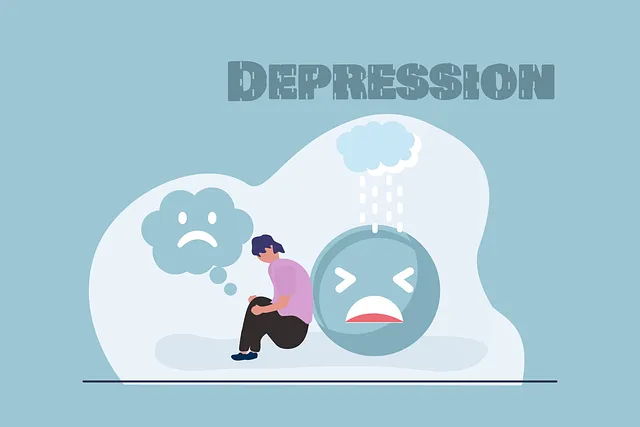Kaiser Permanente's RFM framework, backed by robust behavioral health services reviews, offers a transformative approach to resilience building. This model emphasizes recovery from adversity, flexibility in change, and mastery over one's life, empowering individuals to cope with stress, prevent depression, and develop positive mindsets. Through evidence-based practices like self-awareness exercises and stress reduction methods, Kaiser Permanente's tailored programs enhance mental well-being, foster emotional robustness, and provide tools for long-lasting trauma support, as evidenced by numerous successful client stories.
Resilience is a vital asset in navigating life’s challenges, and Resilience, Flexibility, and Mastery (RFM) exercises have emerged as powerful tools for building mental strength. This comprehensive guide explores RFM as a framework for fostering resilience, focusing on its application within Kaiser Permanente Behavioral Health Services. We delve into the benefits of resilience-building programs, how to evaluate their success, and provide a step-by-step guide to implementing effective RFM strategies for enhanced well-being. Discover how these practices can lead to superior mental health outcomes, backed by insights from top behavioral health services providers.
- Understanding RFM: A Framework for Resilience
- Kaiser Permanente Behavioral Health Services: An Overview
- The Role of Resilience Building Exercises in Mental Well-being
- Evaluating Success: What Makes a Superior Program?
- Implementing RFM Strategies: A Step-by-Step Guide
Understanding RFM: A Framework for Resilience

Resilience is a powerful tool for navigating life’s challenges, and the RFM (Recovery, Flexibility, Mastery) framework offers a structured approach to building this essential skill. Developed by Kaiser Permanente behavioral health services reviews, RFM provides a comprehensive model that helps individuals enhance their ability to cope with stress, prevent depression, and develop effective coping skills.
The RFM framework focuses on three key areas: recovery from adversity, flexibility in the face of change, and mastery over one’s life. By understanding and practicing these principles, people can cultivate resilience, enabling them to adapt to difficult situations and maintain a sense of control. This proactive approach to mental well-being has been praised for its effectiveness in various superior behavioral health services reviews, highlighting its potential to transform lives and foster a more positive mindset.
Kaiser Permanente Behavioral Health Services: An Overview

Kaiser Permanente Behavioral Health Services offers a comprehensive array of programs designed to enhance mental well-being and resilience. With a focus on evidence-based practices, they provide a range of services tailored to individual needs, from therapy sessions to innovative resilience building exercises. The organization’s commitment to excellence is evident in their superior reviews, with many clients praising the effectiveness of their programs in managing stress, anxiety, and promoting positive thinking.
Their specialized teams utilize Self-Awareness Exercises and Stress Reduction Methods to empower individuals in navigating life’s challenges. By fostering self-understanding and resilience, Kaiser Permanente Behavioral Health Services aims to help people lead happier, more fulfilling lives. The positive impact of these initiatives is reflected in the numerous success stories shared by former clients, underscoring the superior quality of care they receive.
The Role of Resilience Building Exercises in Mental Well-being

Resilience building exercises play a pivotal role in enhancing mental well-being, as recognized by top healthcare providers like Kaiser Permanente behavioral health services reviews. These exercises are designed to empower individuals with superior coping mechanisms and emotional fortitude, enabling them to navigate life’s challenges with greater ease. By focusing on both self-awareness exercises and communication strategies, people can develop a deeper understanding of their thoughts and feelings, leading to improved emotional regulation.
The integration of mind over matter principles in resilience training allows individuals to reframe negative thoughts and cultivate a more positive outlook. This mental shift is crucial for building resilience, as it helps people view setbacks as opportunities for growth rather than insurmountable obstacles. Ultimately, these exercises contribute to a holistic approach to mental well-being, fostering not just emotional robustness but also a sense of control and empowerment in various aspects of life.
Evaluating Success: What Makes a Superior Program?

Evaluating success is a key component in designing a superior RFM and resilience-building program, especially when considering Kaiser Permanente behavioral health services reviews. A high-quality program should not only address symptoms but also foster long-lasting emotional healing processes and enhance trauma support services. It goes beyond simply offering coping mechanisms; it aims to empower individuals with effective stress management tools that can be applied in various aspects of life.
The mark of an exceptional program is its ability to facilitate meaningful change, promote personal growth, and help participants develop robust resilience. This involves integrating evidence-based practices that cater to individual needs, ensuring accessibility, and providing ongoing support. By embracing a holistic approach, focusing on both mental and physical well-being, these programs can offer transformative experiences, as evidenced by positive Kaiser Permanente behavioral health services reviews, and empower individuals to navigate life’s challenges with enhanced resilience.
Implementing RFM Strategies: A Step-by-Step Guide

Implementing RFM (Resilience, Flexibility, and Mastery) strategies effectively is a powerful tool for enhancing mental well-being, as evidenced by Kaiser Permanente behavioral health services reviews. The first step involves identifying key areas of resilience-building within an individual’s life, whether it be personal relationships, career, or self-care routines. This process begins with introspection—encouraging individuals to reflect on their strengths, weaknesses, and previous experiences that have shaped their ability to cope. For instance, promoting self-esteem improvement through positive affirmations and goal-setting exercises can significantly enhance an individual’s sense of control and resilience.
Next, create a structured plan focusing on flexibility by introducing new coping mechanisms and problem-solving strategies. This might include mindfulness practices, stress management techniques, or even engaging in community outreach program implementations to foster connections and empathy building strategies. By regularly practicing these skills, individuals become more adept at navigating challenging situations, ultimately strengthening their mental resilience. Superior outcomes are achievable when these exercises are tailored to individual needs and incorporated into daily life, leading to improved overall well-being.
Resilience is a powerful tool for enhancing mental well-being, and the RFM framework offers a structured approach to building this crucial skill. As evidenced by Kaiser Permanente behavioral health services reviews, integrating resilience-building exercises into programs can lead to significant improvements in participants’ overall mental health and happiness. By following the step-by-step guide outlined in this article, professionals can effectively implement RFM strategies, creating superior programs that empower individuals to navigate life’s challenges with greater ease and confidence.






